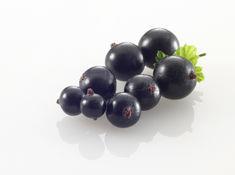
A preliminary study by the New Zealand Institute for Plant & Food Research suggests that natural chemicals found in blackcurrants may help balance the impacts exercise can have on the body.
Researchers have found signs that an extract derived from New Zealand-grown blackcurrants - taken in capsule form before and after exercise - has three potential effects: minimising muscle damage by modulating oxidative stress; modulating inflammation; and potentially enhancing the body’s natural defences against disease. The findings are published in the ‘American Journal of Physiology - Regulatory, Integrative Comparative Physiology’.
Negative impact from sustained sports training is a growing health issue. While exercise is universally agreed to be healthy, extreme exercise - such as intense pre-event training - can have some drawbacks, including lowering the body’s immune defences and the increasing risk of muscle damage.
The Plant & Food Research study, led by Dr Roger Hurst, looked at untrained individuals undergoing moderate exercise. It showed that those who took the blackcurrant extract exhibited reduced markers for oxidative stress linked to muscle damage and inflammation, as well as increased activity linked to immune response.
Hurst said: “In our research, we chose a group of 10 healthy everyday people with a wide age range who exercised regularly, and measured biochemical indicators to assess the effect of taking the blackcurrant extract capsules before and after exercise.
“We found changes in the levels of biomarkers that indicate antioxidant activity, inflammation modulating ability and a support for the natural immune responsiveness to potential pathogens.”
The positive link between blackcurrants and exercise has been previously highlighted in studies in Japan where scientists evaluated the ability of NZ-grown blackcurrants to reduce inflammation in muscle groups related to sustained computer use and keyboard typing. This Japanese research flagged the potential of blackcurrants to reduce lactic acid build-up in muscles.
Hurst said Plant & Food Research is yet to determine exactly what blackcurrant compounds cause the observed effects, but he doubts that vitamin C is a factor, because the extracts tested contained only very low levels of the vitamin.
“We’re looking more closely instead at the role of flavanoids within the fruit,” he said. “Flavanoids are antioxidants, including anthocyanins, the compounds that gives blackcurrants their brilliant black-red colour.”
The study was undertaken and funded by Plant & Food Research in support of a wider research programme called New Berries, funded by the government and the New Zealand blackcurrant industry. This programme investigates the antioxidant and immune supportive properties of berries and berry products. It aims to use this knowledge to breed elite New Zealand berries with assured health-promoting properties that will have multiple end-uses, including the development of functional foods.
Plant & Food Business Manager for food innovations Karl Crawford said the paper has generated strong interest from industry and has also highlighted new areas for further research.



